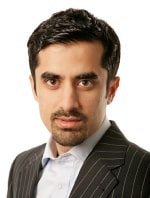By Anita Hawser
Takaful insurance markets are growing steadily in the Gulf, but the regulatory framework is still developing in some countries.

Taking out car, property or life insurance is second nature in the West, but in the Middle East the concept of insurance, at least at the retail level, is relatively undeveloped. Conventional insurance has penetrated only a small percentage of the world’s Muslim markets, and there is limited awareness of insurance products, savings and retirement plans in most Muslim-majority countries.
Insurance penetration is steadily increasing though, thanks to mandatory insurance legislation such as compulsory medical in Saudi Arabia and the emergence of insurance products that are based on Islamic principles of mutuality and risk sharing.
According to Ernst & Young’s 2012 World Takaful Report, Saudi Arabia is the largest market for takaful (Islamic insurance) contributing $4.3 billion, or 52% of volumes. The third-largest contributor is the UAE, with contributions of $818 million. Across the region, takaful now enjoys significant market share and continues to grow at a faster pace than conventional insurance. Parvaiz Siddiq, CEO of Noor Takaful in Dubai, says takaful will continue to grow 15 percentage points above conventional insurance in the Gulf Cooperation Council (GCC).
“Takaful started with wakala and mudaraba. Now people are using hybrids, which have elements of both and some variance in between.”
– Vasilis Katsipis, AM Best
But the actual rate of growth is slowing. The compound annual growth rate of takaful contributions in the GCC, excluding Saudi Arabia, fell from 54% between 2005 and 2009 to 33% in 2010, says Ernst & Young.
Adeel Mushtaq, senior manager, insurance and takaful advisory, KPMG Bahrain, says takaful products have gained a stable customer base and recognition. As an Islamic finance concept, however, takaful is less understood by customers compared to other elements such as Islamic banking. “Most of the customers are unable to distinguish between a takaful policy and a conventional policy,” Mushtaq explains. “Hence, customers are price-sensitive.” Takaful products are inherently expensive, says Mushtaq, compared to conventional products because of the premium nature of the service and higher compliance requirements.
 |
|
Mushtaq, KPMG Bahrain: Takaful is less understood by customers than other Islamic banking products |
DIFFERENT MODELS
Takaful is based on the concept of “mutuality”, with participants donating contributions to a fund used to cover members’ losses. Typically, an operator is appointed to manage the fund on a commercial basis, using Islamic contracts such as wakala and mudaraba. Under mudaraba, the policyholders provide the funds and the shareholders (mudarib) manage the fund’s investments and underwriting. Any surplus in the “takaful pool” is shared with the operator based on an agreed ratio, which takes into consideration the operator’s underwriting and investment management performance. Under wakala, policyholders own the pool, but the operator, who manages underwriting and investment management, is paid an upfront wakala fee irrespective of results, says Ernst & Young.
“The wakala model is generally considered to be the nearest to takaful theory,” says Mushtaq. “It is the model that differentiates between the policyholder (sharing risk based on the principle of mutuality) and the operator of the fund (bringing technical skills to manage the policyholder fund for a service fee).”
Saudi Arabia has moved away from “pure takaful”, stating that all insurers must move to a cooperative model, which does not permit charging a wakala fee. “Saudi is of the view that everything that happens in their country is shariah-compliant,” explains Vasilis Katsipis, general manager, market development, MENA and South & Central Asia, for insurance rating agency AM Best. “But the rest of the world looks at Saudi and says this is not really takaful.”
As a concept, takaful is in its infancy, says Mushtaq, and different jurisdictions are trying different models approved by shariah to determine what one works best. For that reason, he says, there are slight variations in models operating in Sudan, Pakistan, Saudi Arabia, Bahrain, the UAE, Malaysia and other jurisdictions. Katsipis believes some of these models need to be more closely scrutinized. “Takaful started with wakala and mudaraba. Now people are using hybrids, which have elements of both and some variance in between. In some cases the fee (wakala) charged by the operator is very high, which means the policyholders’ fund will take longer to build up.”
There needs to be greater clarity on policyholder protection, he adds, as the level of takaful regulation differs markedly from country to country. The UAE, Dubai International Financial Center, Bahrain and the Qatar Financial Center have implemented takaful-specific regulation, while Kuwait, Oman and Qatar (ex the QFC) have made no specific provisions for takaful, although that is changing.
“One of the things we are highly focused on is making sure customers know what they are getting and how it performs in the long run,” says Adrian Flowers, CEO of Saudi-based SABB Takaful, in which HSBC is a major shareholder. “The level of disclosure and standards are very high.” Flowers says regulators are getting more detailed in their questioning of takaful companies and are looking to improve industry standards.
 |
|
Flowers, SABB Takaful: Retail buyers are concerned with Islamic principles, while corporate buyers are driven by price |
PROFITABILITY
But the different regulatory treatment of takaful across the GCC creates uncertainty for policyholders, says Katsipis, and it adds a layer of cost for operators, particularly in centers where compliance is more onerous. The Ernst & Young report notes that expense ratios for takaful firms in the GCC are typically higher than for insurers in the same market. Mushtaq explains that takaful firms are typically young and developing claims experience. The wakala fees are also an additional layer of expense. “Takaful companies have to compete in a highly price-sensitive market,” he says. Based on a sample of GCC firms, Ernst & Young found that the average return on equity for takaful operators in 2011 was 4%—compared to 8% for insurance companies. Operators, however, stress that takaful is a different proposition to conventional insurance. “It [takaful] needs to be looked at more in terms of the long-term value of the business and how policyholders benefit from that,” says Flowers. Siddiq of Noor Takaful says the ROE of takaful operators should be calculated on the basis that they have to manage two funds—the policyholders’ fund and the shareholders’ fund.
Aggressive price competition is also impacting the profitability of takaful firms. In the Saudi market, Flowers says, there is strong competition among the 29 operators, which the market is not big enough to sustain. “Some of the risk pricing in the market, particularly in the health sector, is below market norms,” he says. “In the long term, if you don’t get the risk/return ratios correct, it could have serious implications for the future.”
It all boils down to whether consumers buy takaful based on price or because of its benefits and philosophy. Flowers says the retail sector in Saudi Arabia is more concerned with Islamic principles, while the corporate market is driven more by price. “Some of the very large organizations that you would expect to be developed from a risk mitigation perspective are fixated on price rather than the quality of what they’re purchasing. It is about getting more momentum behind takaful in GCC and educating people.” Siddiq says competition should be based more on “soft” factors, such as quality of customers and equitable and fair claim settlement.
There is certainly significant untapped potential for takaful to develop across the region. Most of the market in the GCC is currently concentrated in the retail space with family takaful representing less than 5%, says Ernst & Young. In the family sector, which SABB Takaful is focused on, there is still a degree of skepticism, Flowers says, as to whether life insurance is shariah. “We do see that slowly changing,” he says. Operators are also building up their corporate takaful coverage. “The biggest challenge faced by takaful operators with regard to corporate business is reinsurance/retakaful capacity, which is still limited despite many large conventional reinsurers’ entering the retakaful space,” says Siddiq.
“In the long term, if you don’t get the risk/return ratios correct, it could have serious implications for the future.”
– Adrian Flowers, SABB Takaful
Major global reinsurers, such as Hannover Re and Munich Re, are present in the GCC, however there is still a shortage of what Mushtaq calls well-rated retakaful capacity to accept and retain large industrial and specialty lines in the region. Global reinsurance majors are looking to bring additional retakaful capacity and capabilities to the region to fill this gap. Despite the many challenges the takaful industry faces, Mushtaq remains optimistic about the future. “Conventional insurance has been around for 300 years or more and is well established, whereas takaful is a relatively new concept and will take time to develop. It is not difficult to understand that young takaful firms struggle to compete against the conventional firms.”




